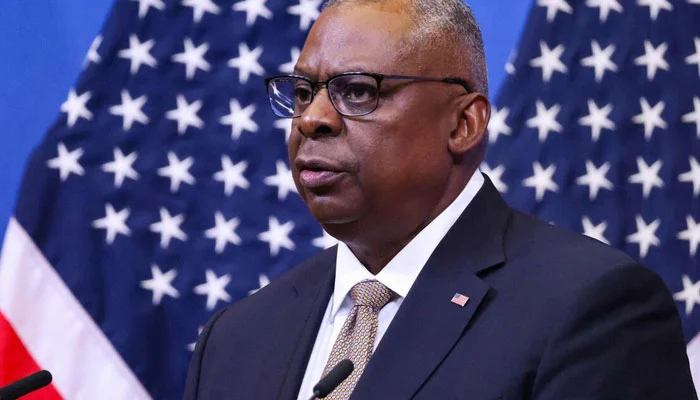Following surgery in December to cure prostate cancer, US Secretary of Defense Lloyd Austin had a urinary tract infection. As a result, he was admitted to Walter Reed National Military Medical Center.
His hospitalisation was just recently revealed, which led to intense criticism of the Pentagon’s lack of transparency about the matter—President Joe Biden and Austin’s deputy were not even aware of it for several days.
The hospital claimed that Austin, 70, a prominent member of the US military hierarchy, is making a good recovery despite side effects after his prostate cancer treatment on December 22. Severe hip, leg, and abdomen pain as well as ongoing nausea were among these side effects. Austin was admitted to the critical care unit on January 2 after his urinary tract infection was determined to be the cause of his symptoms.
A statement from the hospital, signed by physicians John Maddox and Gregory Chesnut, stated that additional testing indicated accumulation of fluid in his abdomen that were impairing the function of his intestines. As a result, a tube had to be inserted through his nose to relieve the stomach drainage. The Walter Reed medical staff is upbeat about Austin’s prognosis despite the obstacles, noting that the infection has cleared up but issuing a warning that the rehabilitation may take some time.
The complications posed by Austin’s hospitalization stem from his line of work, which requires him to be immediately available to manage situations involving national security. Restricted to a hospital bed, there are logistical challenges associated with his requirement to be continuously reachable for secure communications in the event of emergency, such as a potential nuclear threat.
President Biden came under fire during the commotion around the postponed disclosure. Concerns concerning the designation of prostate cancer therapy as elective were raised after it was revealed that the Pentagon had neglected to notify him of Austin’s first December treatment for what was deemed an elective operation.
Republicans, including former President Donald Trump, continued to call for Austin’s resignation; nevertheless, Austin’s appointment as defense secretary was reaffirmed by the Pentagon and the White House.
In the middle of all of this, Air Force Major General Patrick Ryder emphasized Austin’s commitment to recovery while continuing to be resolute in his role as secretary of defense.







